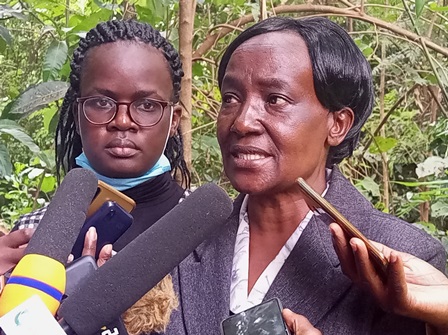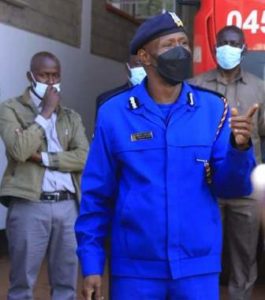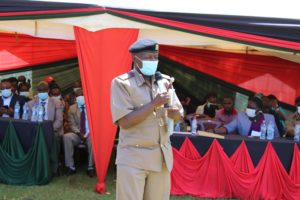
By Elizabeth Angira, DevReporter, Kisii County

Critical questions arise as to the extent to which suicide is a problem in Kenya and globally. At the same time, questions are also raised as to whether suicide is a social problem or health condition.
Statistics on suicide
According to a 2021 World Health Organization (WHO) report, more than 700,000 people die due to suicide every year, and this makes suicide the fourth leading cause of death among 15-19 year-olds globally.
“Every suicide is a tragedy that affects families, communities and all countries, and has long-lasting effects on the people left behind,” says WHO.
The World Bank says suicide mortality rate in Kenya is 6.1 people in every 100,000, with men being at the highest risk: 9.1 men in every 100,000 are affected.
A recent Kenya National Police Service (KNPS) report that says Kisii County recorded 93 suicide cases with men accounting for 81 cases or 87 percent compared to 12 cases for women.
“This rising number [of suicide cases] within a span of one year is alarming,” says Mr Francis Kooli, the Kisii Police County Commander.

Suicide and the law
Chapter 63, Section 226 of Kenya’s Penal Code stipulates that any person who attempts to kill himself or herself is guilty of a misdemeanor.
The penalty is up to two years in prison, a fine or both.
Causes of suicide
Mr Kooli attributes suicide to land disputes, domestic violence, substance abuse, financial issues, and other behavioral challenges.
“Loss of jobs and lack of guidance and counselling are some of the causes of suicide cases among men,“ says Ms Esnahs Nyaramba, a leader of a youth lobby group, the Young Democrats.
Who is at risk of suicide?
The WHO says suicide is a global phenomenon with over 77 per cent of the cases occurring in low and middle-income countries in 2019.
“…Many suicides happen impulsively in moments of crisis with a breakdown in the ability to deal with life stresses, such as financial problems, relationship break-up or chronic pain and illness,” says WHO.
WHO adds that experiencing conflict, disaster, violence, abuse, or loss, coupled with a sense of isolation, are strongly associated with suicidal behaviour.
Solution to rising suicide cases
Ms Nyaramba calls on the national and county governments to facilitate guidance and counselling services at all health facilities, especially for people at risk.
“Majority of the vulnerable members of society cannot afford to access these services in the private sector,“ she said.
Dr Ruth Mogaka, a psychologist, calls on members of the public to seek guidance and counselling since “a problem shared is a half solved.”
“Our men facing any life challenge should put aside the notion that simply being a man should prevent one from speaking out about any problem,” she says.

Societal initiatives
The Kisii County government, in collaboration with the national government and other stakeholders, has initiated measures, among them, the formation of Baraza la Wanaume Programme.
The Programme, which targets young and old men offers “a platform to speak out their personal and marital problems that may lead to suicidal thoughts,” explains Mr Wilberforce Kilonzo, the Kisii Central Deputy County Commissioner, adding that since the launch of the Programme, suicide cases are going down.





